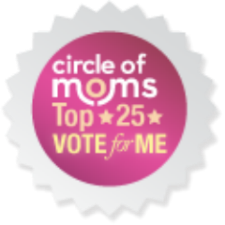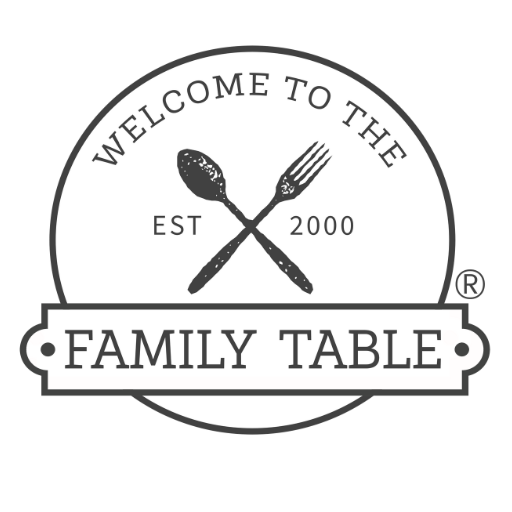{Guest Post} Factors to Consider When Choosing Curriculum
The following is a guest post by one of my dear friends, Savannah McQueen who blogs over at Hammock Tracks. Enjoy!
Deciding to home school is a monumentally big decision and it is really only overshadowed, in my opinion, by trying to choose which curriculum you should use for your children. Well the good news is, there are more curriculums to choose from than ever before and no matter how special and specific you desire your choice to be, it can be found. The bad news is, there are more curriculums to choose from than ever before. As you weed through the many choices it can leave your head spinning, and you may find yourself wondering how you got into with this homeschooling thing.
After a decade of home schooling I have created eight tips to help you make a wise choice. If your child is in school when you decide to begin teaching them at home, I would advise you to take a year, with a reduced schedule of teaching, that only includes reading, math and writing. Hold off on making large curriculum purchases. During this time read everything about home schooling that you can get your hands on. This will help you to learn what is out there and allow you to develop your plan of attack, so to speak. Also, if you find the perfect most wonderful and absolutely divine curriculum and after two months it isn’t working for your child, sell it and find something new. I’m not talking about skipping around from book to book. Yes, we need to stay dedicated to our choices, but sometimes we choose great curriculum that is just a bad fit for our children. It took me a long time to really embrace this, but after my daughter broke down in tears of frustration over Saxon math, I realized that just because it worked for her older brother didn’t make it a working solution for her.
Savannah’s Eight Factors to Consider When Choosing Curriculum
1. Cost – Obviously you have a budget and I don’t need to tell you that, but costlier materials is not necessarily better. Don’t be fooled into thinking that if you don’t buy the best your child will not learn enough. You are offering one on one education, and as such, your child will learn more with medicare tools than she would with the best books in a school setting. You can customize and fill in the blanks and even just use the book as outline. So, think twice before you buy the extra value pack etc. And always look for places online to purchase it used. My favorite choices are eBay, Vegsource and The Homeschool Lounge.
2. Learning Style – The way your child learns is the biggest factor in determining whether or not a curriculum will be successful, or a struggle. If you have a Perfect Polly, who likes filling in the blanks and creating neat writing assignments, she will be frustrated with a loose curriculum that expects her to produce what she has learned on a blank sheet of paper. She needs her lines! It will be like shoving a round peg in a square hole. Scholastic offers a great test to help you determine your child’s learning style.
3. Number of Children/Age Span – Some curriculums really do a great job of being versatile to the number of children and the different ages that can be taught with it. Others make the task far more difficult and you could lose your mind trying to complete school each day. After all there are only so many hours in a day. So, depending on the number of children you have and their age span you might want to determine how many separate curriculums you want to teach, and if the ones you has chosen are versatile enough to span a few grades.
4. Religious Perspective – If you want religion to play a part in all/part of your subjects then you want to start refining your search, with this at the top of your list. Why bother looking at choices that are great curriculums but fail to meet your needs in this category. No matter your faith, take heart, there will be resources available for your home education. I would suggest doing a search for blogs that home educate and share your faith. They, unlike the publishers, have really used the materials and will be able to give a true assessment.
5. Prep Time – I recently used a wonderful writing curriculum for my ten year old son. He is a really talented writer but he doesn’t like investing the time to do a good job. I knew that the writing books I had chosen would be teacher prep intensive and only he (one of three children) would benefit from this time. Since however I thought that this short period of intense study with lots of learning extras that would boost his confidence, I took the plunge. It paid off and I am glad I chose it, but I didn’t order the next book because I know I cannot continue that schedule. Again, no matter how great the book is, if you cannot pack it into your daily study you won’t complete it, and you may even come to resent it.
6. Need for Parent Instruction – In the early years nearly every subject will require parent instruction. In the late elementary years this will begin to change and they will only need 50% of their subjects to be led by you. Late middle school finds them needing about 30% instruction and finally in high school it evolves to about 10% guided learning. So, you will want to pick curriculum that supports this.
7. Pre – Test – I cannot tell you how important this is or how stupid I was to not do it the first year we started school. Just do it! If you do a search for placement tests online you will find many. Also, check with the company you are purchasing the texts through. Many times they will offer placement tests that correlate to their books. But I repeat…Just do it!
8. Homework – Do your homework. Get online with a home school forum and ask what other mothers think of a curriculum. Ask if they find it runs true to grade, some do not. Ask if anyone has had bad experiences with it, and why? Go to Cathy Duffy’s Homeschool Curriculum Review and see how she broke down her review of the texts you are considering. These questions will reveal a lot about the true integrity of the program you are considering.
I encourage you to remember that they are your children and you do know what is best for them. Invest the time you have in learning all you can and then just make a purchase. If it turns out to be a poor choice, it is a lesson learned.
What about you? What is important to you when choosing curriculum? What tips would you offer?
Savannah McQueen is the author of Hammock Tracks where she writes about her life on the hammock – an elevated tract of land rising above the general level of a marsh region. Or in other words, where she calls home. This is a record of her life, or the “tracks” that her family leaves there. They home school and do other crazy things like raise rabbits, garden, fish, hunt and spend a lot of time together. Just as animals leave tracks in the marsh near their home, they leave tracks here for you to read and hopefully enjoy.

Dear Friends,
If you enjoy reading my blog, would you please take 30 seconds of your time to vote for me? I’ve been nominated for the Top 25 Homeschooling Blogs on Circle of Moms. Click the icon below and it will take you to the voting page and just click “vote”! You can do this once every 24 hours thru June 27. Thank you for all your support. I truly am blessed by each and every one of you!



Nice list! I especially agree with #s 6 and 7. The last thing I want is to still be spoon-feeding them the information by the time they’re tweens/teens, so I plan accordingly.